Looking back at Lincoln: On this day, 1842
I see you printed that long letter I sent you a spell ago [2]---I'm quite encouraged by it, and can't keep from writing again. I think the printing of my letters will be a good thing all round,---it will give me the benefit of being known by the world, and give the world the advantage of knowing what's going on in the Lost Townships, and give your paper respectability besides. So here come [3] another. Yesterday afternoon I hurried through cleaning up the dinner dishes, and stepped over to neighbor S--- to see if his wife Peggy was as well as mought be expected, and hear what they called the baby. Well, when I got there, and just turned round the corner of his log cabin, there he was setting on the door-step reading a newspaper.`How are you Jeff,' says I,---he sorter started when he heard me, for he hadn't seen me before. `Why,' says he, `I'm mad as the devil, aunt Becca.'
`What about,' says I, `aint its hair the right color? None of that nonsense, Jeff---there aint an honester woman in the Lost Township than---'
`Than who?' says he, `what the mischief are you about?'
I began to see I was running the wrong trail, and so says I, `O nothing, I guess I was mistaken a little, that's all. But what is it you're mad about?'
`Why,' says he, `I've been tugging ever since harvest getting out wheat and hauling it to the river, to raise State Bank paper enough to pay my tax this year, and a little school debt I owe; and now just as I've got it, here I open this infernal Extra Register, expecting to find it full of ``glorious democratic victories,'' and ``High Comb'd Cocks,'' when, lo and behold, I find a set of fellows calling themselves officers of State, have forbidden the tax collectors and school commissioners to receive State paper at all; and so here it is, dead on my hands. [4] I don't now believe all the plunder I've got will fetch ready cash enough to pay my taxes and that school debt.'
I was a good deal thunderstruck myself; for that was the first I had heard of the proclamation, and my old man was pretty much in the same fix with Jeff. We both stood a moment, staring at one another without knowing what to say. At last says I, `Mr. S--- let me look at that paper.' He handed it to me, when I read the proclamation over.
`There now,' says he, `did you ever see such a piece of impudence and imposition as that?' I saw Jeff was in a good tune for saying some ill-natured things, and so I tho't I would just argue a little on the contrary side, and make him rant a spell if I could.
`Why,' says I, looking as dignified and thoughtful as I could, `it seems pretty tough to be sure, to have to raise silver where there's none to be raised; but then you see ``there will be danger of loss'' if it aint done.'
`Loss, damnation!' says he, `I defy Daniel Webster, I defy King Solomon, I defy the world,---I defy---I defy---yes, I defy even you, aunt Becca, to show how the people can lose any thing by paying their taxes in State paper.' `Well,' says I, `you see what the officers of State say about it, and they are a desarnin set of men.' `But,' says I, `I guess you're mistaken about what the proclamation says; it don't say the people will lose any thing by the paper money being taken for taxes. It only says ``there will be danger of loss,'' and though it is tolerable plain that the people can't lose by paying their taxes in something they can get easier than silver, instead of having to pay silver; and though it is just as plain, that the State can't lose by taking State Bank paper, however low it may be, while she owes the Bank more than the whole revenue, and can pay that paper over on her debt, dollar for dollar; still there is danger of loss to the ``officers of State,'' and you know Jeff, we can't get along without officers of State.'
`Damn officers of State,' says he, `that's what you whigs are always hurraing for.' `Now don't swear so Jeff,' says I, `you know I belong to the meetin, and swearin hurts my feelins.' `Beg pardon, aunt Becca,' says he, `but I do say its enough to make Dr. Goddard [5] swear, to have tax to pay in silver, for nothing only that Ford [6] may get his two thousand a year, and Shields his twenty four hundred a year, and Carpenter [7] his sixteen hundred a year, and all without ``danger of loss'' by taking it in State paper.' `Yes, yes, it's plain enough now what these officers of State mean by ``danger of loss.'' Wash, [8] I 'spose, actually lost fifteen hundred dollars out of the three thousand that two of these ``officers of State'' let him steal from the Treasury, by being compelled to take it in State paper. Wonder if we don't have a proclamation before long, commanding us to make up this loss to Wash in silver.'And so he went on, till his breath run out, and he had to stop. I couldn't think of any thing to say just then: and so I begun to look over the paper again. `Aye! here's another proclamation, or something like it.' `Another!' says Jeff, `and whose egg is it, pray?' I looked to the bottom of it, and read aloud, `Your obedient servant, JAS SHIELDS, Auditor.'
`Aha!' says Jeff, `one of them same three fellows again. Well read it, and let's hear what of it.' I read on till I came to where it says, ``The object of this measure is to suspend the collection of the revenue for the current year.'' `Now stop, now stop,' says he, `that's a lie aready, and I don't want to hear of it.' `O may be not,' says I.
`I say it---is---a---lie. --- Suspend the collection, indeed! Will the collectors that have taken their oaths to make the collection DARE to suspend it? Is there any thing in the law requiring them to perjure themselves at the bidding of Jas. Shields? Will the greedy gullet of the penitentiary be satisfied with swallowing him instead of all them if they should venture to obey him? And would he not discover some ``danger of loss'' and be off, about the time it came to taking their places?
`And suppose the people attempt to suspend by refusing to pay, what then? The collectors would just jerk up their horses, and cows, and the like, and sell them to the highest bidder for silver in hand, without valuation or redemption. Why, Shields didn't believe that story himself---it was never meant for the truth. If it was true, why was it not writ till five days after the proclamation? Why didn't Carlin [9] and Carpenter sign it as well as Shields? Answer me that, aunt Becca. I say its a lie, and not a well told one at that. It grins out like a copper dollar. Shields is a fool as well as a liar. With him truth is out of the question, and as for getting a good bright passable lie out of him, you might as well try to strike fire from a cake of tallow. I stick to it, its all an infernal whig lie.'`A whig lie,---Highty! Tighty!!'
`Yes, a whig lie; and its just like every thing the cursed British whigs do. First they'll do some devilment, and then they'll tell a lie to hide it. And they don't care how plain a lie it is; they think they can cram any sort of a one down the throats of the ignorant loco focos, as they call the democrats.'
`Why, Jeff, you're crazy---you don't mean to say Shields is a whig.'
`Yes I do.'
`Why, look here, the proclamation is in your own democratic paper as you call it.'
`I know it, and what of that? They only printed it to let us democrats see the deviltry the whigs are at.'
`Well, but Shields is the Auditor of this loco---I mean this democratic State.'
`So he is, and Tyler appointed him to office.'
`Tyler appointed him?'
`Yes (if you must chaw it over) Tyler appointed him, or if it wasn't him it was old granny Harrison, and that's all one. I tell you, aunt Becca, there's no mistake about his being a whig---why his very looks shows it---every thing about him shows it---if I was deaf and blind I could tell him by the smell. I seed him when I was down in Springfield last winter. They had a sort of a gatherin there one night, among the grandees, they called a fair. All the galls about town was there, and all the handsome widows, and married women, finickin about, trying to look like galls, tied as tight in the middle, and puffed out at both ends like bundles of fodder that hadn't been stacked yet, but wanted stackin pretty bad. And then they had tables all round the house kivered over with baby caps, and pin-cushions, and ten thousand such little nicknacks, tryin to sell 'em to the fellows that were bowin and scrapin, and kungeerin about 'em. They wouldn't let no democrats in, for fear they'd disgust the ladies, or scare the little galls, or dirty the floor. I looked in at the window, and there was this same fellow Shields floatin about on the air, without heft or earthly substance, just like a lock of cat-fur where cats had been fightin.
`He was paying his money to this one and that one, and tother one, and sufferin great loss because it wasn't silver instead of State paper; and the sweet distress he seemed to be in,---his very features, in the exstatic agony of his soul, spoke audibly and distinctly---``Dear girls, it is distressing, but I cannot marry you all. Too well I know how much you suffer; but do, do remember, it is not my fault that I am so handsome and so interesting.''`As this last was expressed by a most exquisite contortion of his face, he seized hold of one of their hands and squeezed, and held on to it about a quarter of an hour. O, my good fellow, says I to myself, if that was one of our democratic galls in the Lost Township, the way you'd get a brass pin let into you, would be about up to the head. He a democrat! Fiddle-sticks! I tell you, aunt Becca, he's a whig, and no mistake: nobody but a whig could make such a conceity dunce of himself.'
`Well,' says I, `may be he is, but if he is, I'm mistaken the worst sort.
`May be so; may be so; but if I am I'll suffer by it; I'll be a democrat if it turns out that Shields is a whig; considerin you shall be a whig if he turns out a democrat.'
`A bargain, by jingoes,' says he, `but how will we find out.'
`Why,' says I, `we'll just write and ax the printer.' `Agreed again,' says he, `and by thunder if it does turn out that Shields is a democrat, I never will ---'
`Jefferson,---Jefferson---'
`What do you want, Peggy.'
`Do get through your everlasting clatter some time, and bring me a gourd of water; the child's been crying for a drink this livelong hour.'
`Let it die then, it may as well die for water as to be taxed to death to fatten officers of State.'
Jeff run off to get the water though, just like he hadn't been sayin any thing spiteful; for he's a rall good hearted fellow, after all, once you get at the foundation of him.
I walked into the house, and `why Peggy,' says I, `I declare, we like to forgot you altogether.' `O yes,' says she, `when a body can't help themselves, every body soon forgets 'em; but thank God by day after to-morrow I shall be well enough to milk the cows and pen the calves, and wring the contrary one's tails for 'em, and no thanks to nobody.' `Geod evening, Peggy,' says I, and so I sloped, for I seed she was mad at me, for making Jeff neglect her so long.
And now Mr. Printer, will you be sure to let us know in your next paper whether this Shields is a whig or a democrat? I don't care about it for myself, for I know well enough how it is already, but I want to convince Jeff. It may do some good to let him, and others like him, know who and what these officers of State are. It may help to send the present hypocritical set to where they belong, and to fill the places they now disgrace with men who will do more work, for less pay, and take a fewer airs while they are doing it. It aint sensible to think that the same men who get us into trouble will change their course; and yet its pretty plain, if some change for the better is not made, its not long that neither Peggy, or I, or any of us, will have a cow left to milk, or a calf's tail to wring. Yours, truly, REBECCA---.Annotation[1] Sangamo Journal, September 2, 1842.
[2] The first of the letters signed ``Rebecca'' dated August 10, 1842, appeared in the Journal, on August 19, 1842. The author of this first letter was not Lincoln. In all probability the same pen produced it which had produced an earlier series of letters from ``Lost Townships,'' printed in the Journal on February 10, May 5, May 26, and September 15, 1838. The first of this series, dated January 20, 1838, has a number of interesting parallels in style to the first of the ``Rebecca'' series, and reiterates the correspondent's intention of sending the editor a present (a pot of butter in the 1838 letter, a jar of pickles in the 1842 letter) in such a way that one may suspect the editor of the Journal of bending his literary talent to stimulate rural subscribers, notoriously in arrears, to pay in produce.
Be this as it may, there is no satisfactory evidence that Lincoln wrote the earlier series of letters from Lost Townships, and Lincoln's own testimony is against his having written any of the second series except the second letter, which is printed here.
Two more letters appeared in the Journal on September 9: one dated August 29 was comparatively mild in its satire and written in the same vein as the first letter of August 10; the other dated September 8 was somewhat amateurish and made even more offensive personal allusions than those contained in Lincoln's letter. This fourth letter, written by Mary Todd and Julia Jayne, and a piece of doggerel signed ``Cathleen,'' which appeared in the Journal on September 16, presumably had much to do with James Shields' decision to demand from the editor, Simeon Francis, the name of the pseudonymous author. Francis may have given Shields Lincoln's name only, or Shields may have concluded on his own responsibility that only Lincoln could give him satisfaction.
In any event, the remainder of the story is told in the duel correspondence (vide infra).
[3] The editors have been chary of correcting typographical errors, since the intent of semi-literacy is part of Lincoln's satire.
[4] The failure of the State Bank in February, 1842, put a premium on ``sound'' money. State Bank currency was accepted only at a discount, and since other legal tender was scarce many transactions were carried on by barter. That Shields as State Auditor was acting in the best interests of the State in refusing to honor the currency of the State Bank was beside the point so far as Whig political tactics were concerned.
[5] Probably Dr. Addison S. Goddard, Methodist minister.
[6] Thomas Ford, Democrat, governor 1842-1846.
[7] Milton Carpenter, state treasurer, Democrat.
[8] Milton H. Wash, clerk in Shields' office, who had embezzled $1161 of state funds.
[9] Thomas Carlin, Democrat, governor 1838-1842.
Labels: Abraham Lincoln, Lincoln Bicentennial, On this day




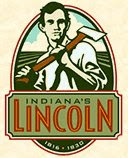











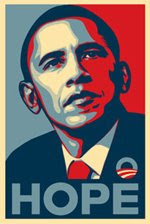
























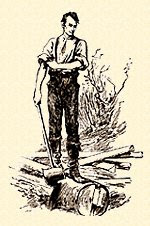




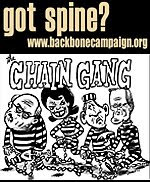








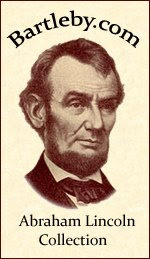



2 Comments:
Wow thats a great story is amazing !!!
Sarchi
thank's your information,,,,this is nice article
Post a Comment
<< Home